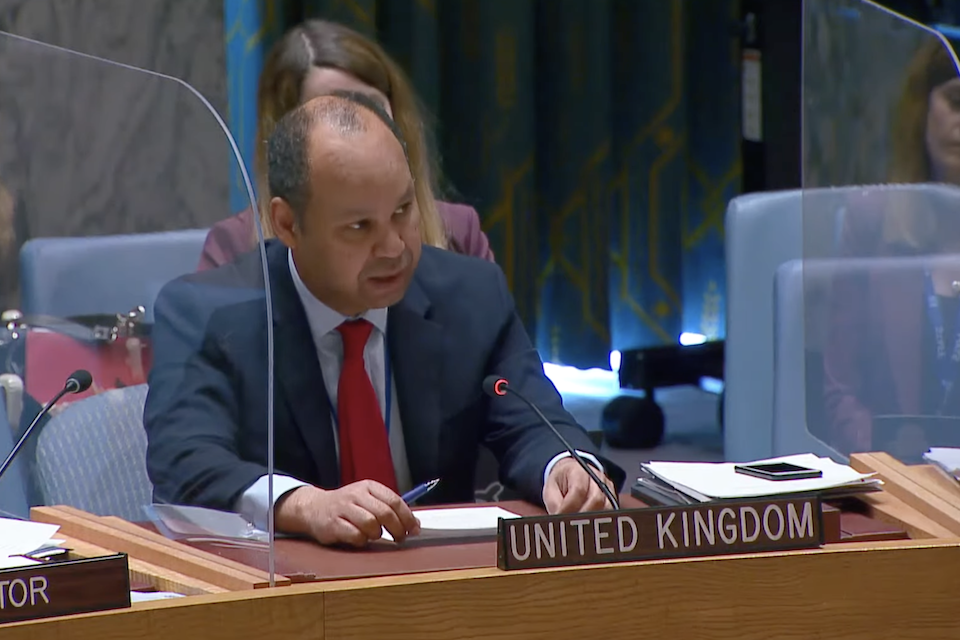The United Kingdom remains committed to supporting Sudan's journey to democracy: UK at the UN Security Council
Statement by Ambassador James Kariuki at the UN Security Council briefing on Sudan and South Sudan

Thank you, Madam President. Let me begin by thanking SRSG Perthes for his briefing, and commend his and his team’s continued efforts in challenging circumstances.
Before focusing on the situation in Sudan, I wanted to note the concerns raised by the Government of Sudan in its 22 March letter to the Council. The United Kingdom fully supports UNITAMS’ efforts to monitor and report on the situation in Sudan, including human rights, as mandated by this Council. For the appropriate support to be provided by the Mission, it is essential for UNITAMS to be able to provide a full and balanced representation of the situation in Sudan in its reporting.
Madam President, since we last discussed Sudan, there has been little cause for optimism. The military seized power on 25 October, claiming that the civilian-led government was failing to deliver on key aspects of the transition. In the five months since, the suffering of ordinary Sudanese people has increased. They continue to face violence, including as we heard sexual violence, human rights abuses, economic hardship and humanitarian crises.
The civilian-led government inherited enormous challenges in 2019. Despite difficulties faced by the transition, Sudan was on a path to a more peaceful, prosperous and stable future. Regrettably, the coup has put these gains at risk, including on economic reform, the peace process and human rights, and it is our sincere hope that there can soon be a return to such progress .
In this regard, we welcome the collaboration between the UN and the African Union, in particular the efforts of SRSG Perthes and AU Envoy Lebatt towards the next phase of talks, with the aim of restoring the transition. There is a great opportunity to end the political crisis. We are encouraged by the consensus on issues like the need for a civilian cabinet, justice and accountability, and the role of women in the transition.
We urge all parties, including the military, to engage fully and in good faith in the next phase of talks.
We deplore the loss of at least 88 lives since the coup began. These people were killed while calling for freedom, peace and justice – something that thousands of Sudanese people continue to do, despite the threat of violence. We urge the authorities to allow protest without violence, to lift the state of emergency and to release political detainees, journalists and activists.
Madam President, the political crisis and actions of the military have contributed to delays in implementing the Juba Peace Agreement, leading to further violence and marginalisation in areas like Darfur.
And, a regrettable consequence of the coup is the economic hardship and increasing humanitarian need across the country. The United Kingdom has a strong track record of providing economic, humanitarian and political support to Sudan.
Let us be clear, it is the actions of the military that have led to the pause in international economic support. We hope the early restoration of a credible, civilian-led transitional government can create the conditions for much needed economic reforms and for international support, including debt relief, to resume.
Instead of calling on the international community to provide economic assistance, let us instead call on the Sudanese stakeholders, especially the military, to reach the sustainable political agreement needed to enable the resumption of such support.
In conclusion, Madam President, the United Kingdom remains committed to supporting Sudan’s journey to democracy, and the realisation of the Sudanese people’s calls for freedom, peace and justice. As a Council we should remain focused on these aspirations and support to the UN-AU-IGAD process.
Thank you.